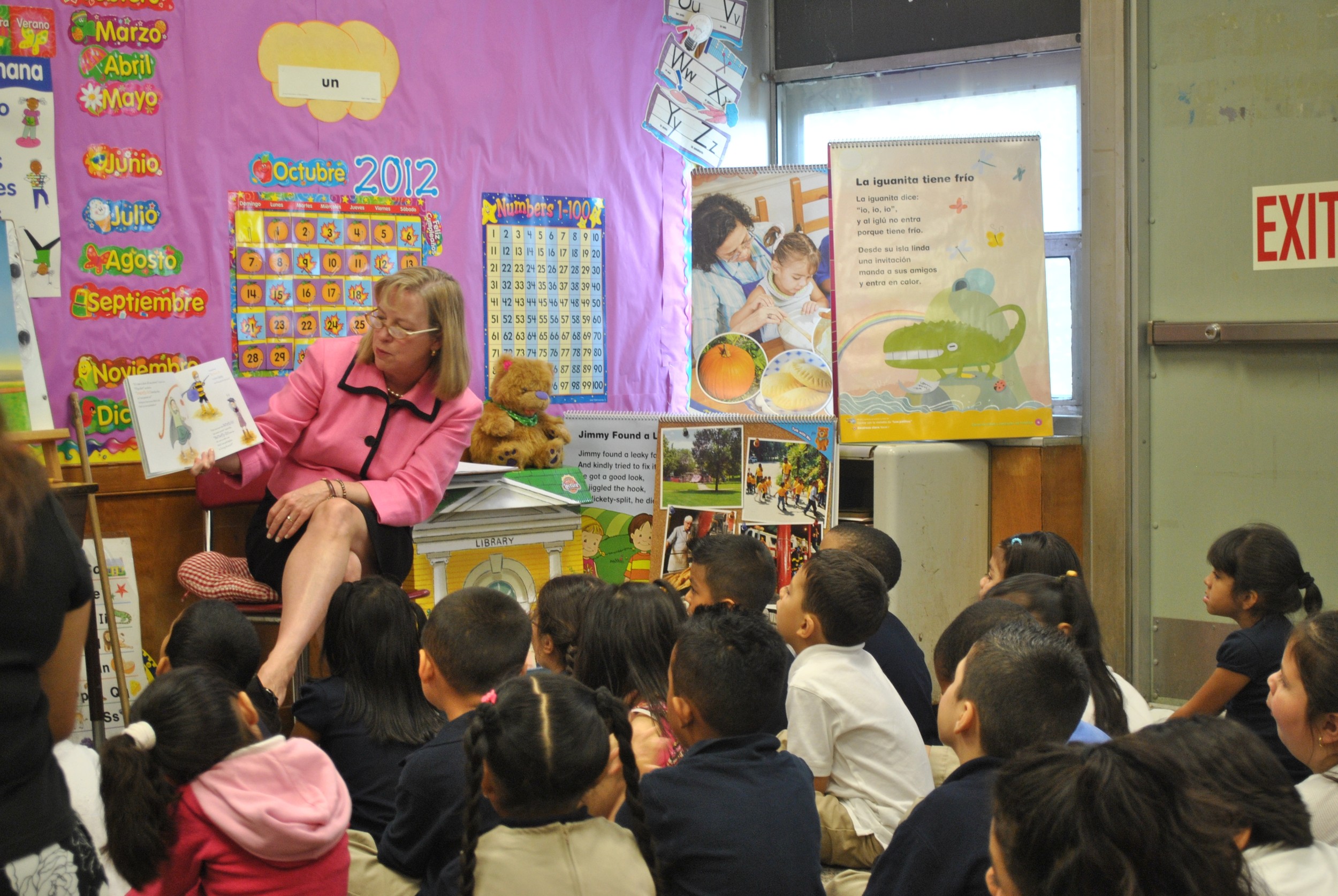Warning: children at risk
Decreasing support of early childhood education in Rhode Island could create a lifetime achievement gap
For instance, what if the extra health care costs for children with asthma – including hospitalization, emergency room visits, and school absenteeism and special education needs – could be compared with the cost of a program to invest limited resources in a home visitation program to address the potential triggers for asthma? And, the calculation could be shared across social networks from a smart phone?
PROVIDENCE – The 13th annual Celebration of Children’s Health on Nov. 4 may mark a high water mark for public policy for children in Rhode Island.
Two key champions of children’s health – Lt. Gov. Elizabeth H. Roberts and Gov. Lincoln D. Chafee – will be leaving the political arena in 2014.
Chafee, who used the Celebration of Children’s Health luncheon to make his first policy remarks after his 2010 election, has chosen not to run again. With his departure, his advocacy of children’s health issues may not retain the same kind of high priority in a new administration.
Roberts, always a strong, consistent voice in support of children’s health, is not seeking political office after serving eight years as lieutenant governor. Her leadership – and her policy of inclusion to bring people with differing opinions to the table – will be difficult to sustain in a time of increasing ideological divide.
Both Chafee and Roberts – as well as their policy teams – will be missed by children’s health advocates, as the state confronts a leaner time of federal and state spending.
This year, almost 400 slots have been eliminated in Rhode Island in the pre-school Head Start program as a result of the current federal sequester, according to Elizabeth Burke Bryant, executive director of Rhode Island KIDS COUNT.
“I am very worried about the federal sequester, which has caused the shuttering of around 390 seats [for Head Start] in Rhode Island, serving very low-income and poor children,” Bryant told ConvergenceRI. “It doesn’t make sense when we are spending investments in education K-12 and dropping the ball on school readiness,” adding that even without the sequester, only 40 percent of the eligible children in Rhode Island are being served by Head Start.
A new policy report, The First Eight Years: Giving Kids a Foundation for Lifetime Success, released on Nov. 4 by the Annie E. Casey Foundation, underscores Byrant’s concerns.
The report sounds the alarm that the nation is failing to invest enough in a child’s early years, according to Bryant.
The report documents how decades of brain and child development research has shown that kids who enter kindergarten with below-average language and cognition ability need effective practices and supportive measures to develop their social, emotional and learning skills.
Moving forward, Bryant said that the new report rightly puts the focus on the first eight years – from birth through third grade – as a critical time for investment so that all children can thrive and succeed.
“In Rhode Island, we believe that every child should have the opportunity to succeed regardless of where they start out in life,” Bryant said in the news release with the report. However, she continued, “When families lack basic resources to meet their young children’s needs, critical opportunities for healthy development are often missed. In Rhode Island, 40 percent of children under 8 live in low-income families.”
Bryant said that investing in children in the early years can help to ensure they succeed both in school and in life, benefiting Rhode Island in the long run.
One take-away from the report, Bryant continued, is that “quality child care makes a difference.” She cited the work being done in Rhode Island to implement a Bright Star quality rating, ranking programs from one to five stars, giving programs – and parents – a sense of where they are on the quality continuum.
Bryant also lauded the effort to create more access to high-quality pre-school slots in Rhode Island, with an additional 90 seats becoming available this year.
Without a way to ensure that more of Rhode Island’s children have access to high-quality pre-K schooling, which can help level the preparation gap that the new report identified, Rhode Island risks creating a lifetime achievement gap for its poorer citizens, Bryant said.
At the luncheon, “Covering Kids Awards” were presented to Dr. Pamela High of Hasbro Children’s Hospital, the Rhode Island Health Center Association, and the R.I. Parent Information Network.






